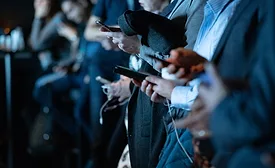Articles by Michael Gips
Leadership & Management
Nominate a deserving colleague: That’s what a leader does
August 2, 2021
Enterprise Services
Putting your faith in Enterprise Security Risk Management (ESRM)
With enterprise security risk management, organizations should consider the risks versus potential impact to dictate when and how often they assess risk. What does that mean for your organization?
May 12, 2021
Sign-up to receive top management & result-driven techniques in the industry.
Join over 20,000+ industry leaders who receive our premium content.
SIGN UP TODAY!Copyright ©2026. All Rights Reserved BNP Media.
Design, CMS, Hosting & Web Development :: ePublishing












